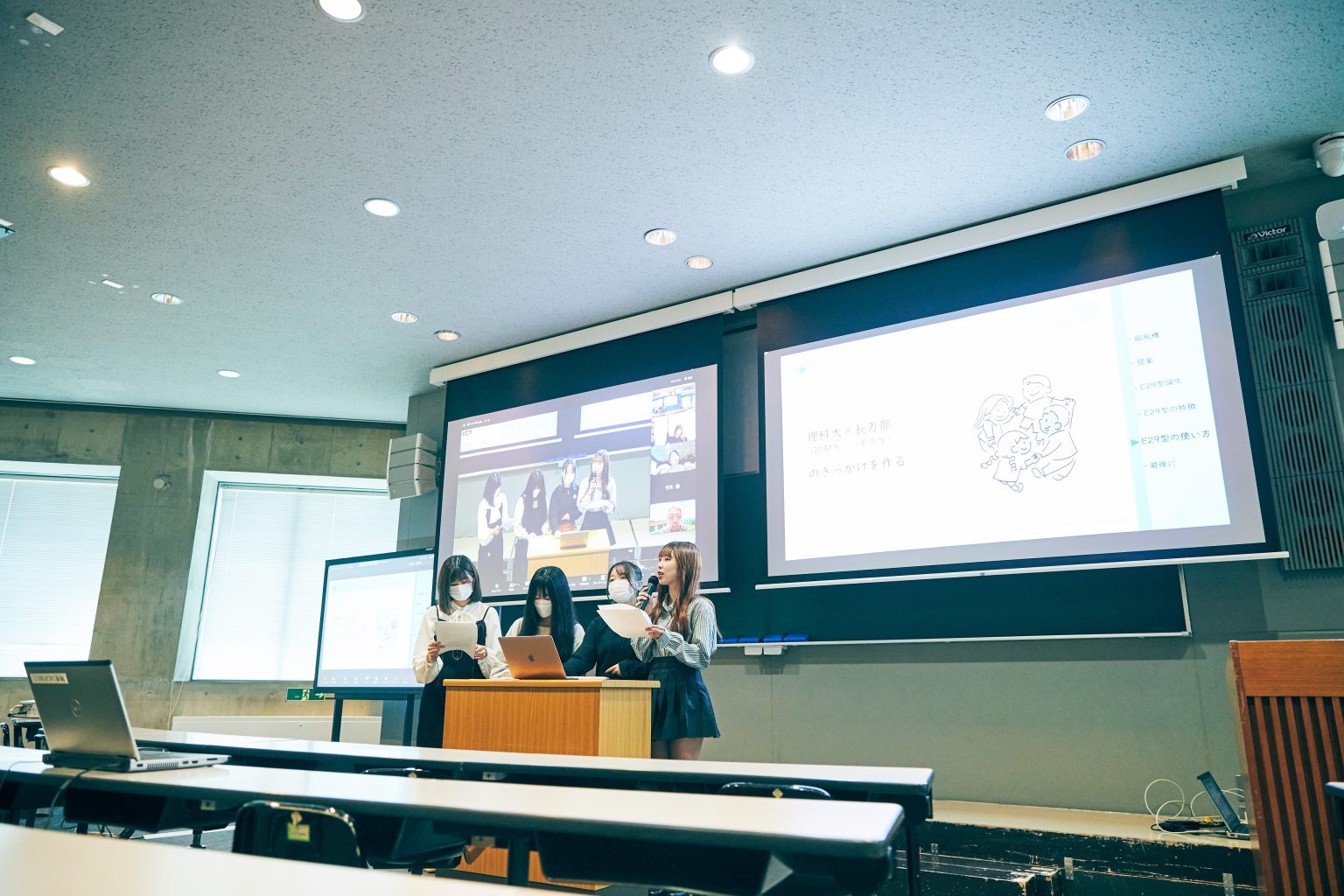While living on the Oshamambe Campus in Hokkaido, freshmen of the School of Management’s Department of International Digital and Design Management (IDM) are participating in an undertaking for Scandinavian-style design thinking with local residents. Its name is the “Co-Design Project.” Professor Iijima says, “We see ‘design thinking’ as an intellectual activity that starts with a troublesome issue and attempts to create artificial objects or mechanisms to help create a better future. The Co-Design Project is not about using words like ‘problem’ or “solution.’ Instead, it is about contemplating vexing issues together with the people who live with them, conceptualizing a better future, and then putting the results into practice to make that future a reality.” According to Professor Suzuki, “What is important in design thinking is not the ‘problem’ or its ‘solution,’ but one’s mindset toward the issue at hand. For example, simply going to an area and saying ‘this is a problem’ is probably not the correct mindset. It is important to acquire an attitude oriented toward identifying what is required through interaction with people and then putting ideas into practice.” She says the Co-Design Project has no established methods or techniques. It is an original approach of the Tokyo University of Science.

No announcement is made to the community. No one says to the locals, “You are about to encounter students from the university.” One might think that, under such circumstances, the students would have a hard time meeting local residents, but that does not seem to be a concern. More than 30 teams of about 4 people each work on the project, investigating a theme dubbed “TUS + Oshamambe + ??.” Some activities start with a chance encounter, others are inherited from older students, and still others are the result of students’ endeavors to build relationships based on their own ideas. Professor Suzuki says, “When students actively go out and ask questions and residents actively respond, that’s one kind of participation. But I think co-design is about thinking together, which includes observing without talking or simply being in a place together.” Naturally, sometimes things do not go so well, she says, but one of the themes of the IDM is to learn from mistakes without fear of failure.

The “Co-Design Project” is an exercise-based class that continues during the first semester of the first year. However, it is also a never-ending activity that involves conceptualizing the future with local people. At the end of the semester, the community is invited to a presentation reviewing the activities that took place. In one example, a team addressing an issue in the livestock industry attempted to get a realistic view of it by having all members stop eating meat for a week. In another, a team tackling the garbage problem proposed holding a “trash art exhibition” and made works with plastic bottle caps for it. Whether such activities lead to definitive solutions is hard to say, but they are sound initiatives nonetheless. Professor Iijima says, “I think [the project] serves as an initiation for students and gives them motivation with respect to future action.” The students are still freshmen. Undoubtedly, the experiences they have—as well as those they do not have—will make a big difference in their academic careers to come.
■ Main research themes
■ Main research themes